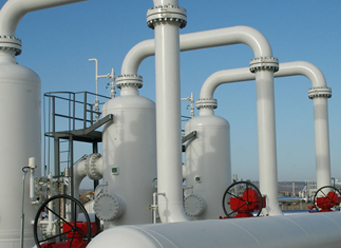Italian
- Afrikaans
- Albanian
- Amharic
- Arabic
- Armenian
- Azerbaijani
- Basque
- Belarusian
- Bengali
- Bosnian
- Bulgarian
- Catalan
- Cebuano
- Corsican
- Croatian
- Czech
- Danish
- Dutch
- English
- Esperanto
- Estonian
- Finnish
- French
- Frisian
- Galician
- Georgian
- German
- Greek
- Gujarati
- Haitian Creole
- hausa
- hawaiian
- Hebrew
- Hindi
- Miao
- Hungarian
- Icelandic
- igbo
- Indonesian
- irish
- Italian
- Japanese
- Javanese
- Kannada
- kazakh
- Khmer
- Rwandese
- Korean
- Kurdish
- Kyrgyz
- Lao
- Latin
- Latvian
- Lithuanian
- Luxembourgish
- Macedonian
- Malgashi
- Malay
- Malayalam
- Maltese
- Maori
- Marathi
- Mongolian
- Myanmar
- Nepali
- Norwegian
- Norwegian
- Occitan
- Pashto
- Persian
- Polish
- Portuguese
- Punjabi
- Romanian
- Russian
- Samoan
- Scottish Gaelic
- Serbian
- Sesotho
- Shona
- Sindhi
- Sinhala
- Slovak
- Slovenian
- Somali
- Spanish
- Sundanese
- Swahili
- Swedish
- Tagalog
- Tajik
- Tamil
- Tatar
- Telugu
- Thai
- Turkish
- Turkmen
- Ukrainian
- Urdu
- Uighur
- Uzbek
- Vietnamese
- Welsh
- Bantu
- Yiddish
- Yoruba
- Zulu
Telephone: +86 13120555503
Email: frank@cypump.com
Nov . 16, 2024 15:16 Back to list
waste water pump
Wastewater Pumps A Critical Component in Modern Sanitation Systems
Wastewater pumps play an essential role in the management of sewage and wastewater, ensuring that these materials are effectively transported from homes and industrial facilities to treatment plants. As urbanization continues to grow, the significance of these pumps in maintaining public health and environmental safety cannot be overstated. This article delves into the importance, types, working mechanisms, and challenges associated with wastewater pumps.
Wastewater Pumps A Critical Component in Modern Sanitation Systems
There are several types of wastewater pumps, each suited for specific applications. The most common among them are centrifugal pumps, submersible pumps, and progressive cavity pumps. Centrifugal pumps work by converting rotational energy into hydrodynamic energy, making them ideal for transporting large volumes of liquid at relatively low pressure. Submersible pumps, on the other hand, are designed to operate underwater. They are often used in wet wells, where they can directly pump wastewater to the surface. Lastly, progressive cavity pumps use a rotating screw-like mechanism to move viscous liquids, making them suitable for handling sludge and other thick materials.
waste water pump

The operational mechanics of a wastewater pump are relatively straightforward. When the pump is activated, a motor drives impellers or rotor systems that create a difference in pressure, pulling wastewater into the pump and pushing it out through discharge pipes. The design and material of the pump are crucial, as wastewater can contain abrasive or corrosive elements that can damage inferior pumps. As such, many pumps are made from stainless steel or other durable materials to withstand harsh conditions and prolong their lifespan.
While wastewater pumps are incredibly effective in managing sewage, they do face challenges. One significant issue is clogging, often caused by inappropriate items being flushed down toilets or washing down drains. Items like wipes, grease, and other solids can accumulate and block the pump, leading to operational disruptions and costly repairs. Furthermore, wear and tear due to consistent operation can also necessitate regular maintenance and replacement parts, which can be an economic burden for municipalities.
Moreover, as environmental regulations continue to tighten, wastewater pumps are facing the challenge of meeting higher efficiency standards. As a response to these regulations, manufacturers are developing more energy-efficient models that consume less electricity while improving performance. This not only contributes to lower operational costs but also supports broader sustainability goals by reducing the carbon footprint of wastewater management systems.
In conclusion, wastewater pumps are indispensable for ensuring a functional and safe sewage system. They facilitate the efficient transport of wastewater, protect public health, and help mitigate environmental impacts. As technology evolves, the design and functionality of these pumps will continue to improve, addressing challenges related to efficiency, clogging, and environmental compliance. The future of wastewater management will likely see pumps that are not only more effective but also more environmentally friendly, ensuring that urban areas can thrive without compromising public health or ecological integrity. As our cities grow and our infrastructure evolves, the importance of these unheralded heroes of wastewater management will only increase.
-
ISG Series Vertical Pipeline Pump- Chi Yuan Pumps Co., LTD.|High Efficiency&Compact Design
NewsAug.02,2025
-
Heavy-Duty Mining Sludge Pumps - Wear-Resistant Slurry Handling
NewsAug.02,2025
-
Horizontal Split Case Pump with GPT-4 Turbo | High Efficiency
NewsAug.01,2025
-
ISG Series Pipeline Pump - Chi Yuan Pumps | High Efficiency, Durable Design
NewsAug.01,2025
-
Advanced Flue Gas Desulfurization Pump with GPT-4 Turbo | Durable & Efficient
NewsJul.31,2025
-
ISG Series Vertical Pipeline Pump - Chi Yuan Pumps | Advanced Hydraulic Design&Durable Construction
NewsJul.31,2025










